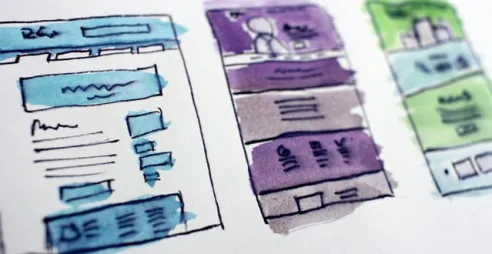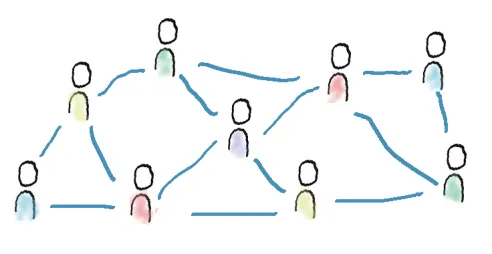Managing a Distributed Team

Article content
In case you've missed them, be sure to check out previous articles on the benefits of distributed working and key tools you should consider using. This post covers the challenges of managing a distributed team and some of the things you should be aware of.
Define the ground rules
Creating a set of ground rules that define how your team collaborates is required for any distributed team and reduces friction and confusion. For example, you should establish rules on how team members log their time, when and how team meetings are held, where and how to document items and what roles and responsibilities each team member has. If everyone is aware of and follows these basic rules, then the risk of a dysfunctional team is minimized.
Everything needs to be accessible
All tools, documents and processes need to be easily accessible regardless of where your team members are located. Tools like Git, Trello and Dropbox are just some of the tools that can help your team work together with minimum fuss. When picking any tool for your company, for example a timesheet entry system, you need to be mindful that it needs to be accessible from multiple locations, and potentially from multiple types of OSes, whether it be Mac, Windows, Linux or even a mobile device. Also, as the management of the company is also distributed, you may need to look at accessible invoicing and contact relationship management tools. There's a lot to think about it!
Communicate, communicate, communicate
Good communication is key to creating a successful distributed team. Managers need to ensure that everyone is communicating their progress frequently and effectively. This is why we have an open Skype window for each project as well as a daily 15 minute scrum call where everyone can say what they did yesterday, what they're working on today and highlight any blockers or issues hindering their progress. We also have an always-open general Skype chat window for general chit-chat and news.
Skype is the tool that works for us, but you may find that your team prefers using Google Hangouts, Yammer, etc. Whatever tool you find people gravitating towards is probably the best one as they're more likely to use it than something they dislike or hate.
Face to face meetings
Just because you have a distributed company, it doesn't mean you should never meet face-to-face. Face-to-face time is vital for team-building and it can be good to get teams together to kick-start a project, or help pull things together at a project's end. Meeting people in person helps bonding and leads to less inter-personnel friction in the long run.
Mentorship
This isn't something we've really formalised a process for (yet) here at Annertech, but new hires (especially if they haven't worked as part of a distributed team before), can often feel a bit at sea and alone when they first start at the company. I suppose you could say the same for traditional companies, but its effects can be more exaggerated for distributed companies. This is why when anybody new takes up a job at Annertech, we try to have them co-work in person with a fellow Annertechie for the first couple of weeks. It speeds up the on-boarding process and makes them feel more connected with the team.
We haven't gone as far as assigning each new hire a mentor, and maybe that's something worth considering, but for now we invite our new employees to speak up and ask questions in Skype whenever they feel stuck, and leave the team as a whole to "mentor" each other.
Trust
This one is crucial. If you don't trust your team to do their jobs, then either you've hired the wrong people or you aren't cut out to be managing them. A lack of trust sucks energy out of a team. It means you're constantly checking up on people and constantly interrupting, you're wasting their time and yours. Without trust, you're no longer a team, just a group of individuals.
So that's it (for now), our three part series on distributed working - 10 Benefits of Distributed Working, 5 Key Tools for Distributed Working, and Managing a Distributed Team. If you've any thoughts (of course you do!), we'd love you to voice them in the comments.




